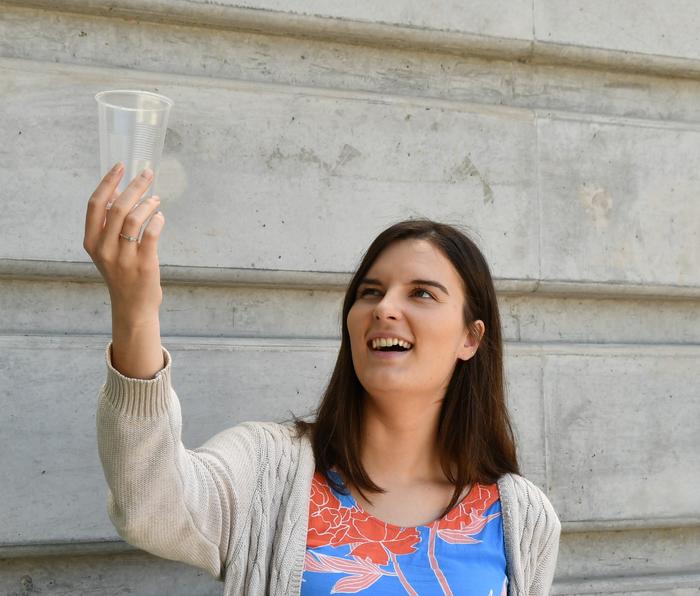Testing for levels of microplastic contamination in marine plankton aims to help develop new ways to assess and manage the rising global pollution problem, Flinders University experts say.

Credit: Flinders University
Testing for levels of microplastic contamination in marine plankton aims to help develop new ways to assess and manage the rising global pollution problem, Flinders University experts say.
Researchers examined the effects of five different chemical digestive aids on common plastics using low, medium and high levels of zooplankton and have published the results in a new article in Science of the Total Environment.
Plastic pollution is the leading form of marine litter, with ever-increasing levels of plastic waste pouring into streams and oceans every year, says Flinders University PhD candidate Elise Tuuri.
“Plastic pollution is found in deep-sea and shoreline sediments, surface waters and in marine biota. This has far-reaching impacts on ecosystems, including harm to marine animals, and has the potential to impact food webs and habitats,” she says.
“If scientists can find a way to determine the association of microplastics with zooplankton, we have a chance to understand and potentially curb damage from microplastics.”
Microplastics (particles less than 5mm) are turning up in the guts of fish and shellfish, and there is concern about the safety of seafood. They can also occur in drinking water and other food products. Both plastics and chemical additives can be toxic.
The exponential growth of plastic production from 2 million metric tonnes in 1950 to 380m metric tonnes in 2015 has made plastic pollution the predominant form of anthropogenic marine litter globally. Production is set to triple by 2050.
Using various levels of cultured zooplankton kept in controlled conditions, the Flinders University researchers were able to examine the effects of five different chemical digestive aids – acid, two different alkaline, enzymatic and oxidative – on common plastics (polyamide, polyethylene, polyethylene terephthalate, polypropylene, and polystyrene).
Professor Sophie Leterme, coauthor of the study just published in Science of the Total Environment, says the various methods resulted in varying degrees of damage to the chemical and physical makeup of these commonly found environmental microplastic pollutants.
Flinders Professor Leterme, director of the ARC Centre for Biofilm Research and Innovation, says reporting microplastic abundances via these methods could help with the collection of data about microplastic particles.
“This will enable us to understand the environmental and health impacts, and develop effective strategies to mitigate marine pollution,” she says.
The article, Efficacy of chemical digestion methods to reveal undamaged microplastics from planktonic samples (2024), by Elise M Tuuri, Jason R Gascooke and Sophie C Leterme, has been published in Science of the Total Environment DOI: 10.1016/j.scitotenv.2024.174279.
Journal
Science of The Total Environment
Method of Research
Experimental study
Subject of Research
Lab-produced tissue samples
Article Title
Efficacy of chemical digestion methods to reveal undamaged microplastics from planktonic samples
Article Publication Date
14-Jul-2024



